Jeonju Bibimbap Festival 2019
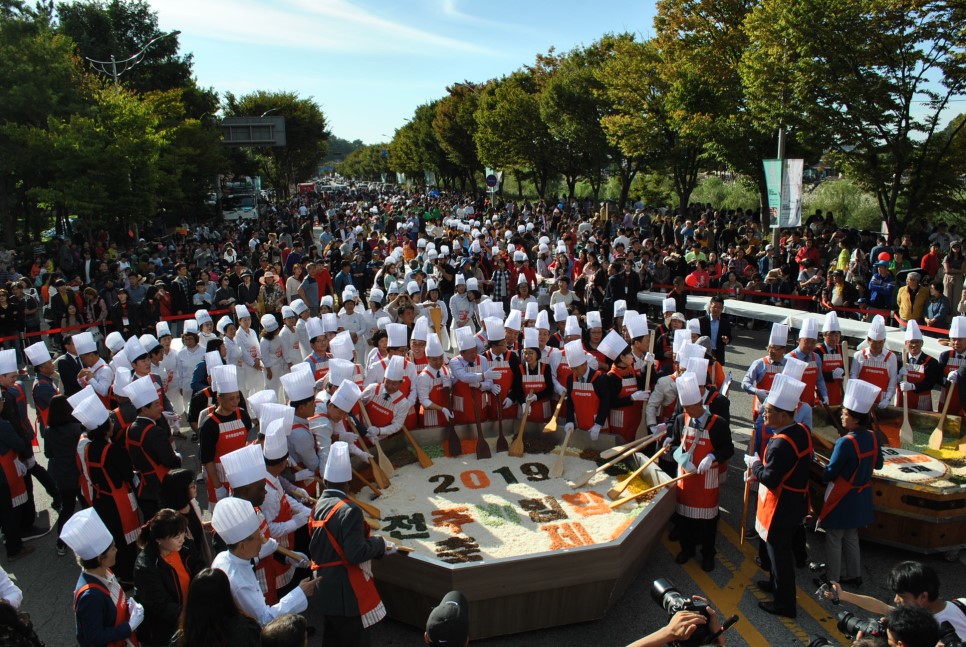
Jeonju is known as the gourmet city of Korean traditional dishes. Among them, bibimbap (assorted vegetables and meat over boiled rice) is probably the most celebrated dish. This is why the city of Jeonju has been holding Jeonju Bibimbap Festival for twelve years. This year, the festival was held from the 9th to the 12th of October. I’ll introduce the three festival programs that I’ve found most interesting.
1. Collect the bibimbap recipe!
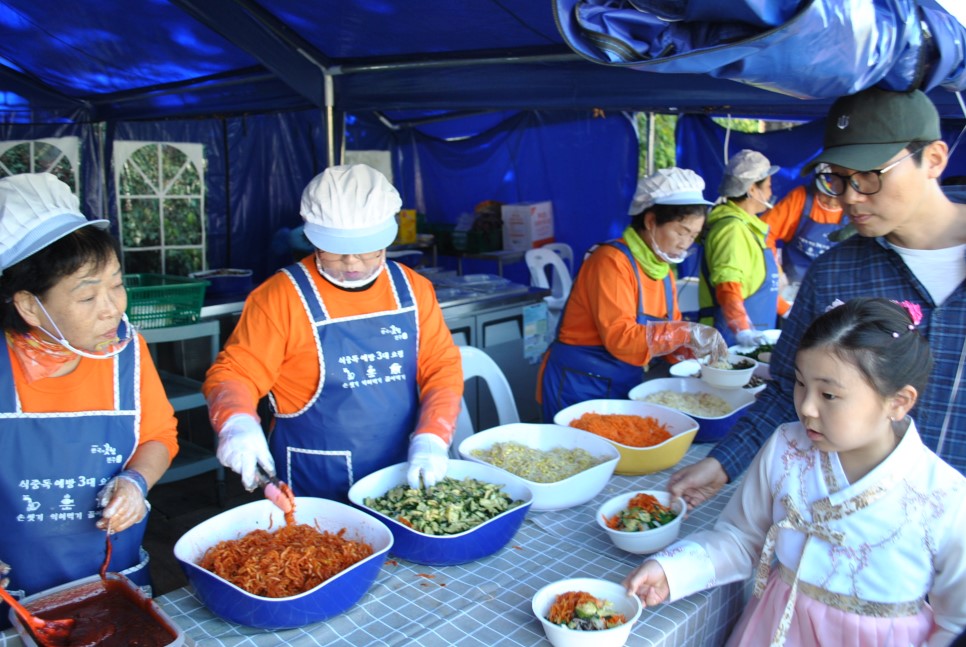
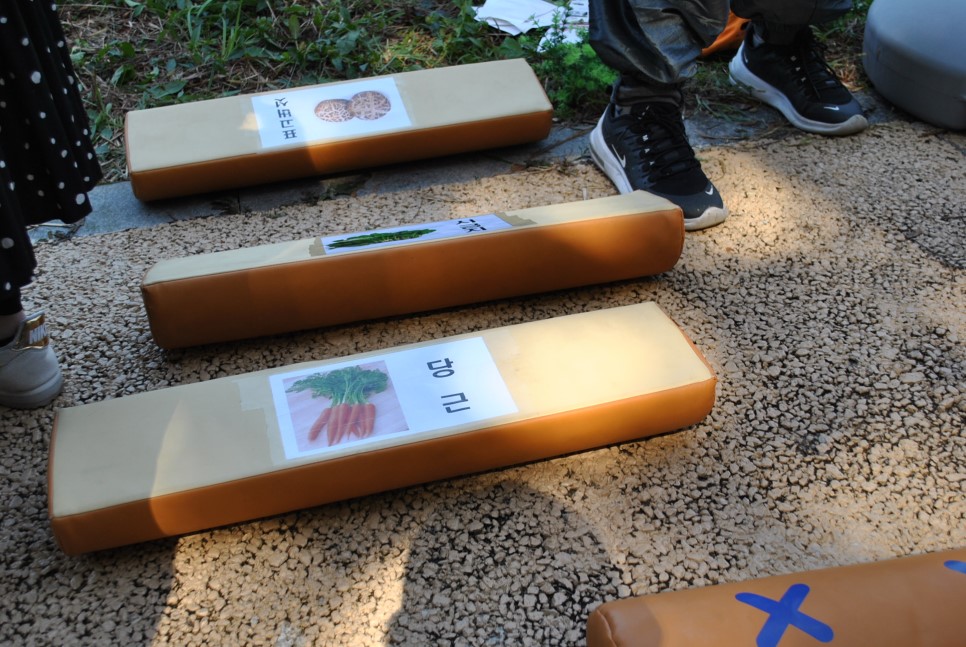
In Jeonju Bibimbap Festival, the visitors can have as much bibimbap as they want. But what’s in the traditional bibimbap dish? I participated in the program to figure out this.
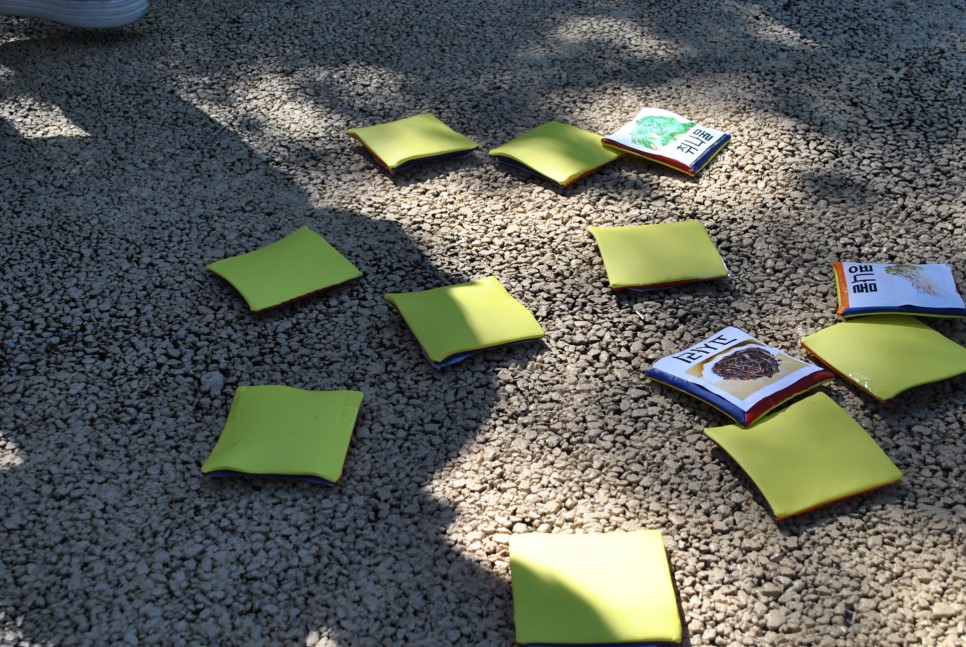
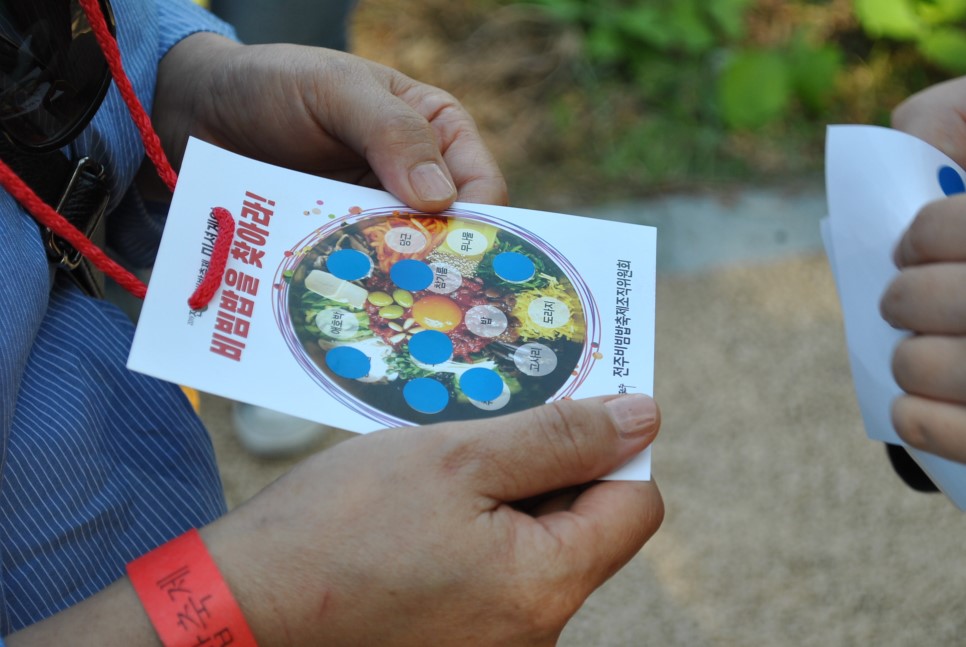
I played a variety of traditional Korean folk games to gain different ingredients for bibimbap. This was not only fun but also gave me the sense of accomplishment.
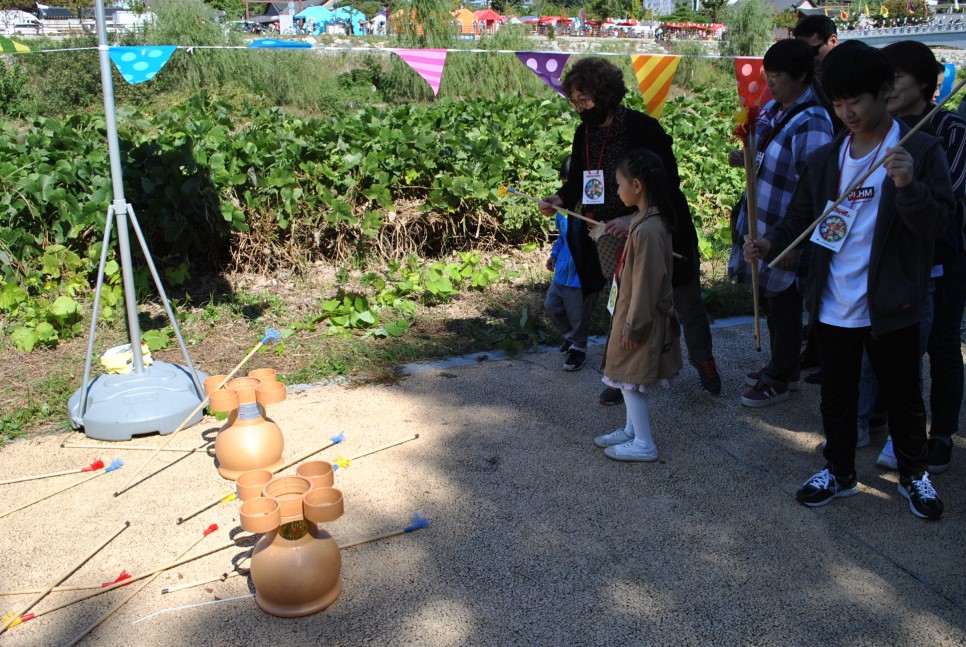
I was surprisingly competitive in those folk games, which made me rather hungry.
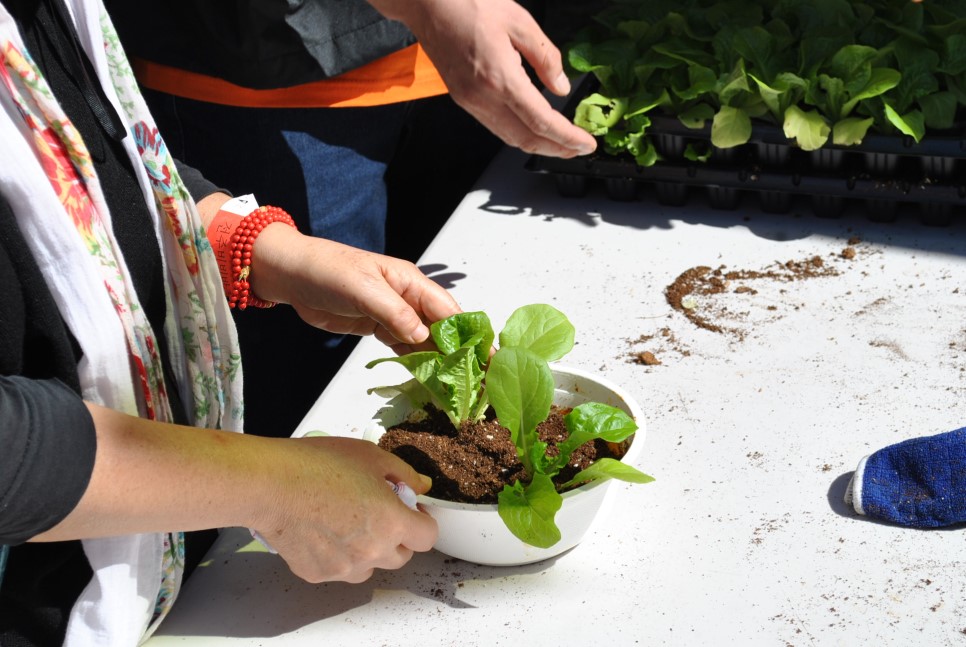
The bibimbap container was being recycled as a pot for lettuce. People loved this!
2. The origins of bibimbap
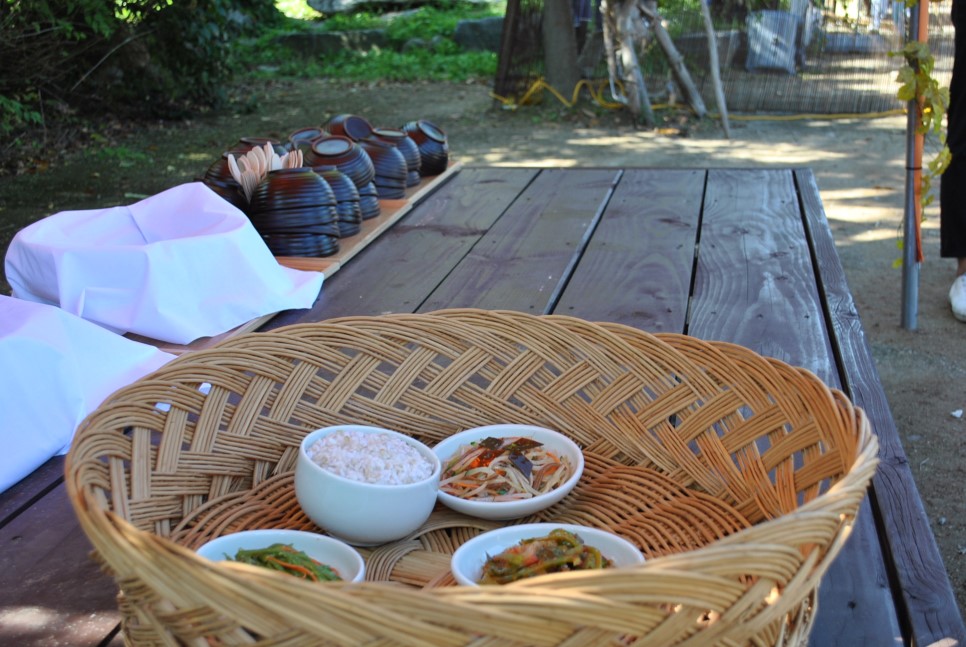
There are several theories on the origin of bibimbap. I walked to Jeonju Hyanggyo (Confucian School Culture Center) to find out.
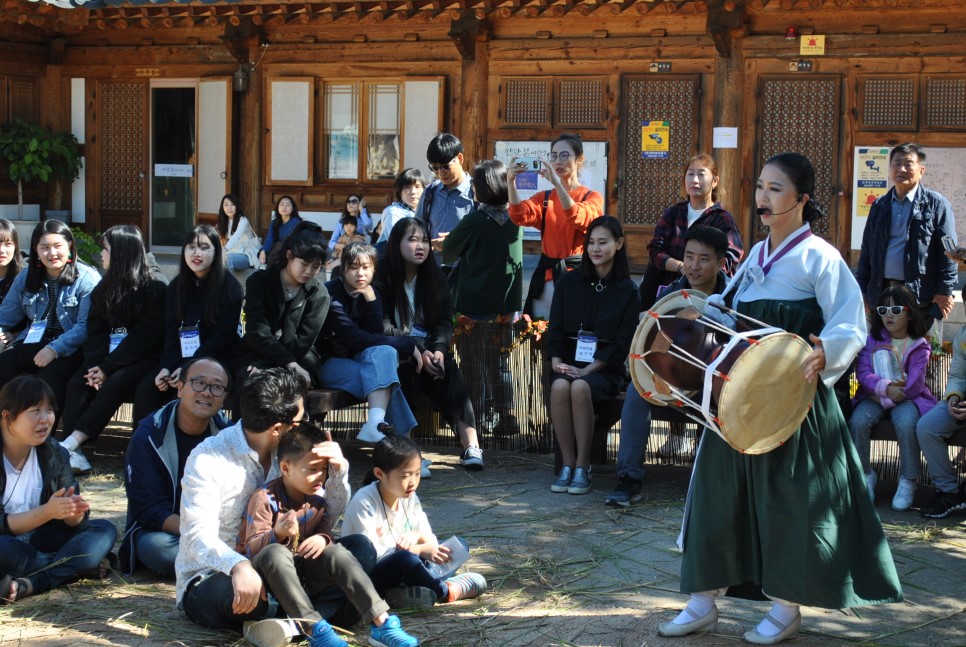
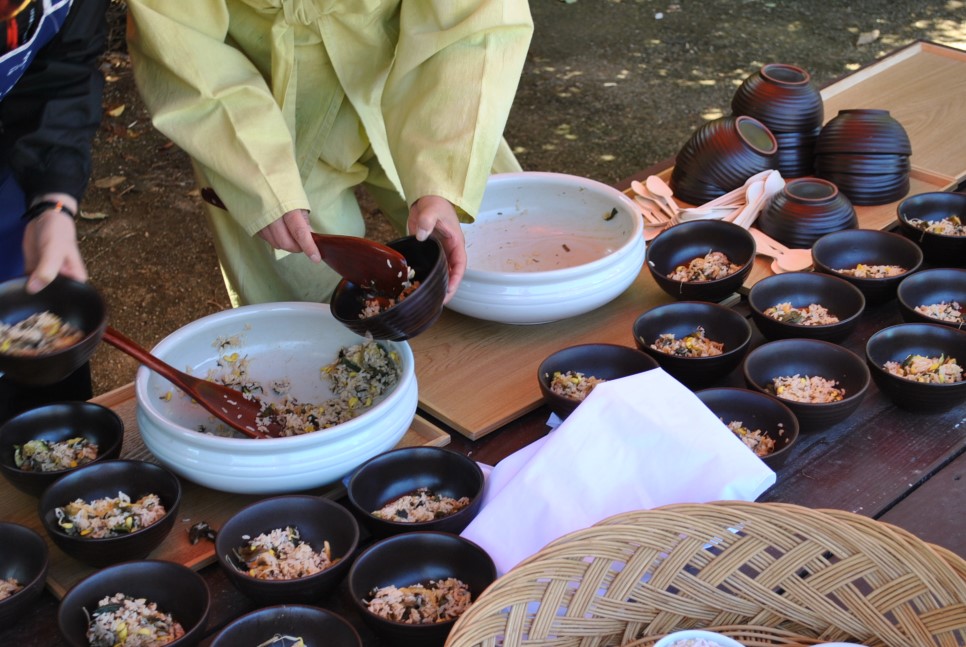
The first theory is that bibimbap originated from the lunchbox of the farmers working in the rice field. During the busy farming season, preparing side dishes separately was rather cumbersome. So, the farmers put all the side dishes together with the rice in their lunchbox.
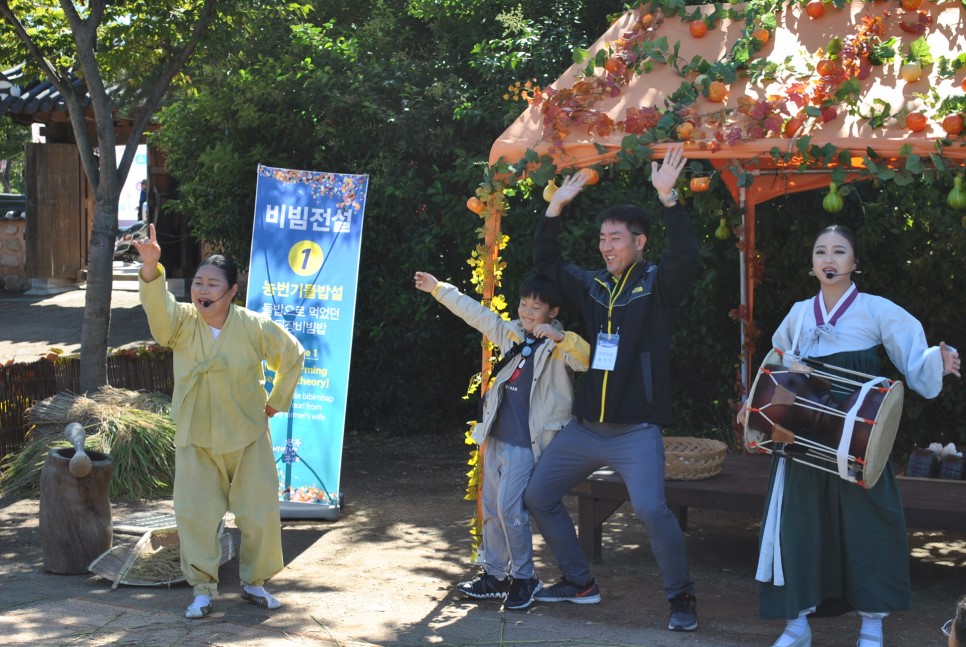
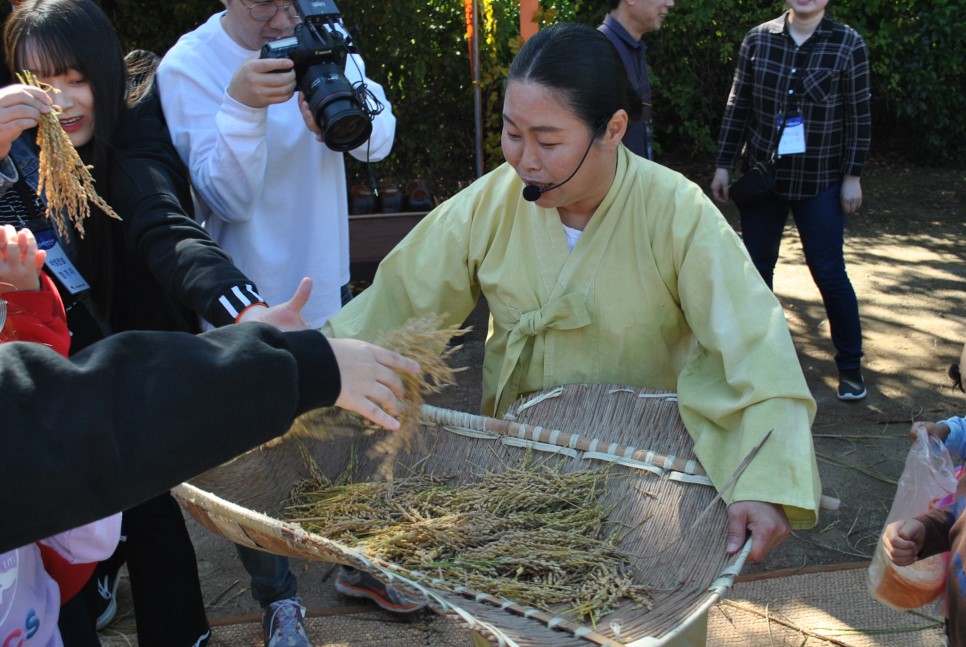
I experienced how the farmers in the ancient times worked. I was also offered doenjang (fermented soy bean paste) bibimbap.
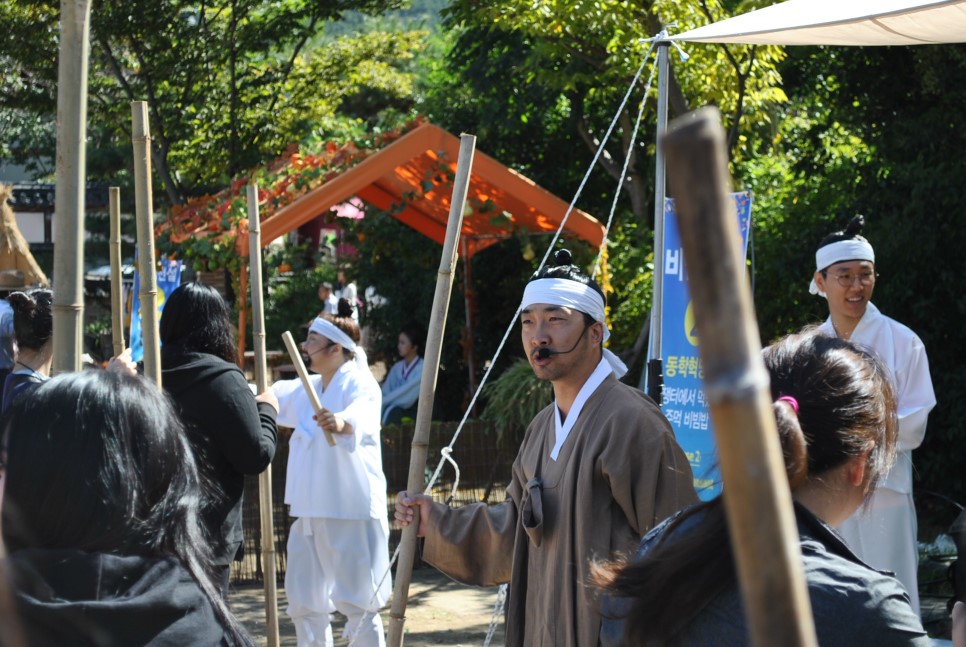
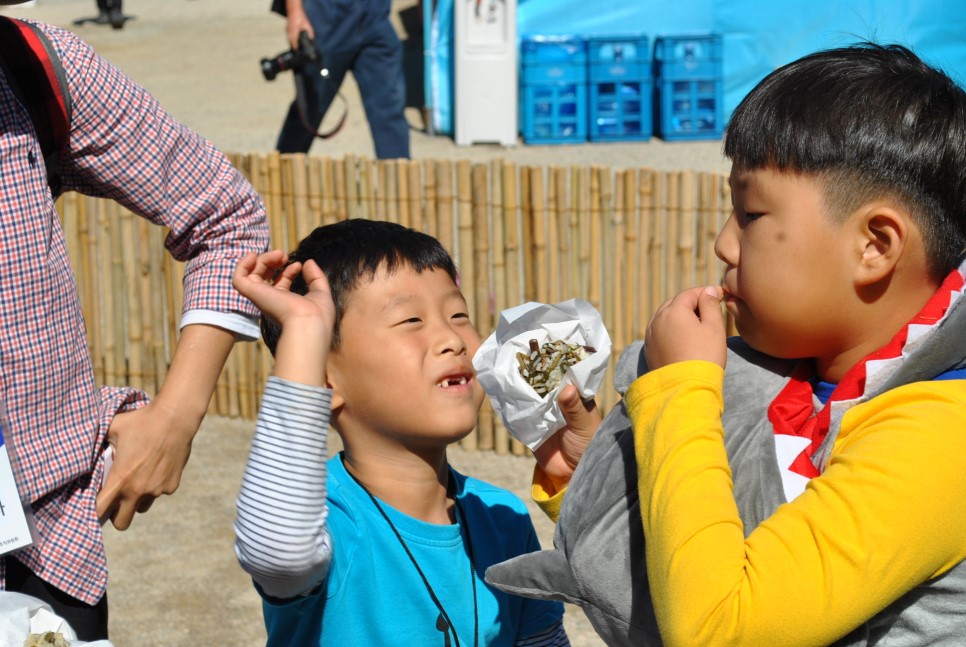
The second theory is that bibimbap originated from the Donghak Peasant Revolution (1894-1895). It was an armed rebellion in Korea led by aggravated peasants and followers of the Donghak religion, which promoted equality for all people. Jeonju and its vicinities has been the center of the revolution.
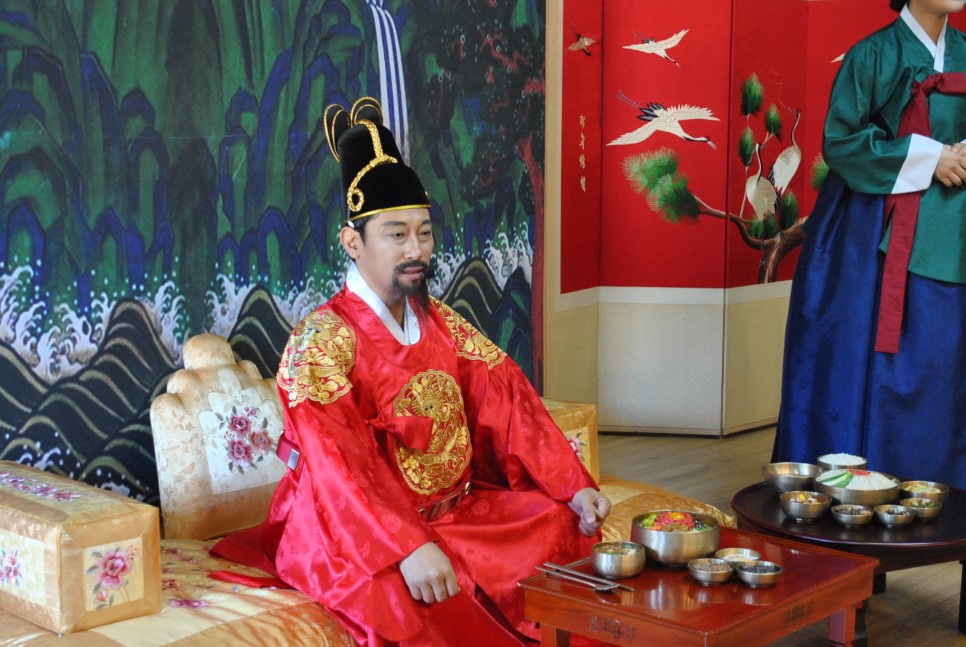
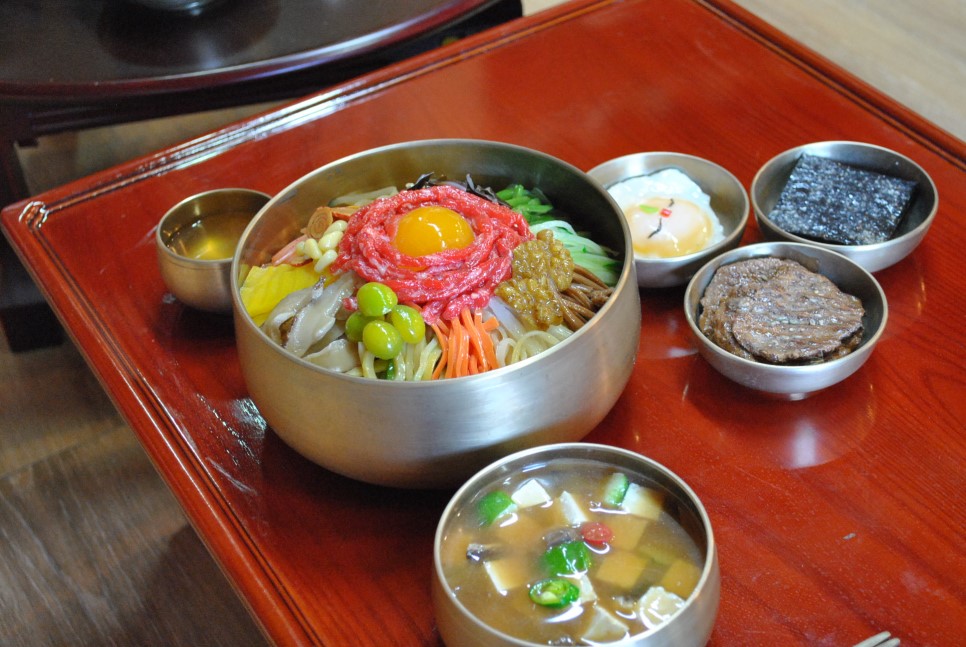
The last theory is that bibimbap originated from the royal cuisine. According to historic records, bibimbap was offered as royal lunch or when the king’s family members visited the palace.
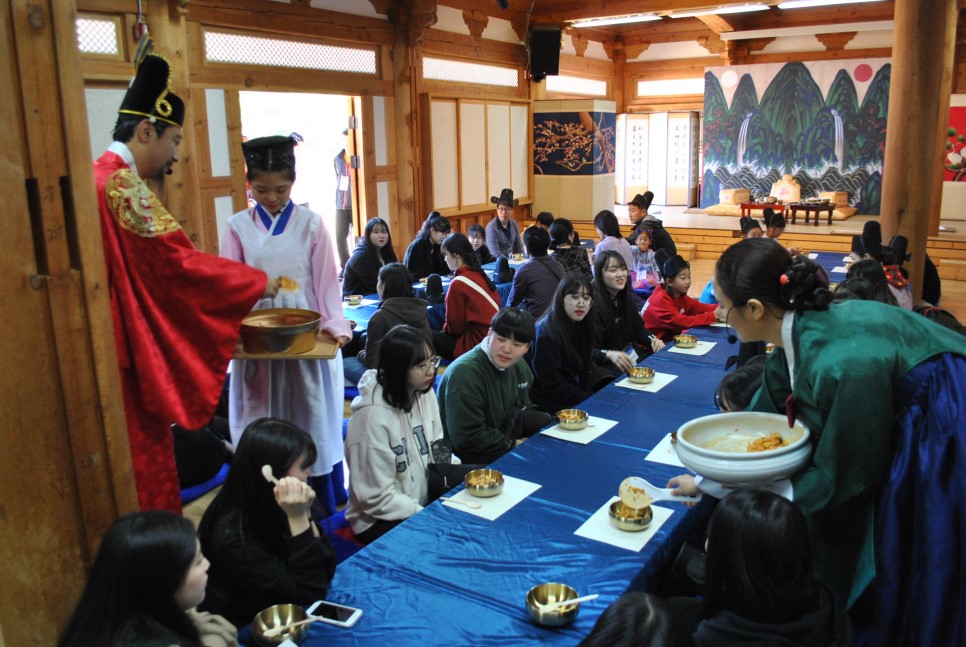
This was surprising, because nowadays bibimbap is enjoyed by many around the world.
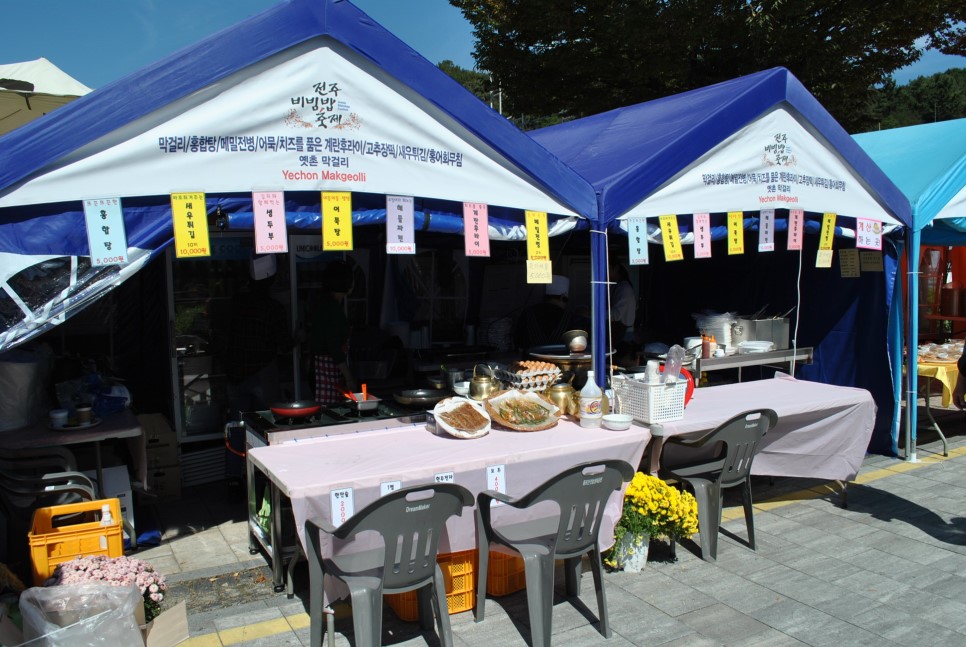
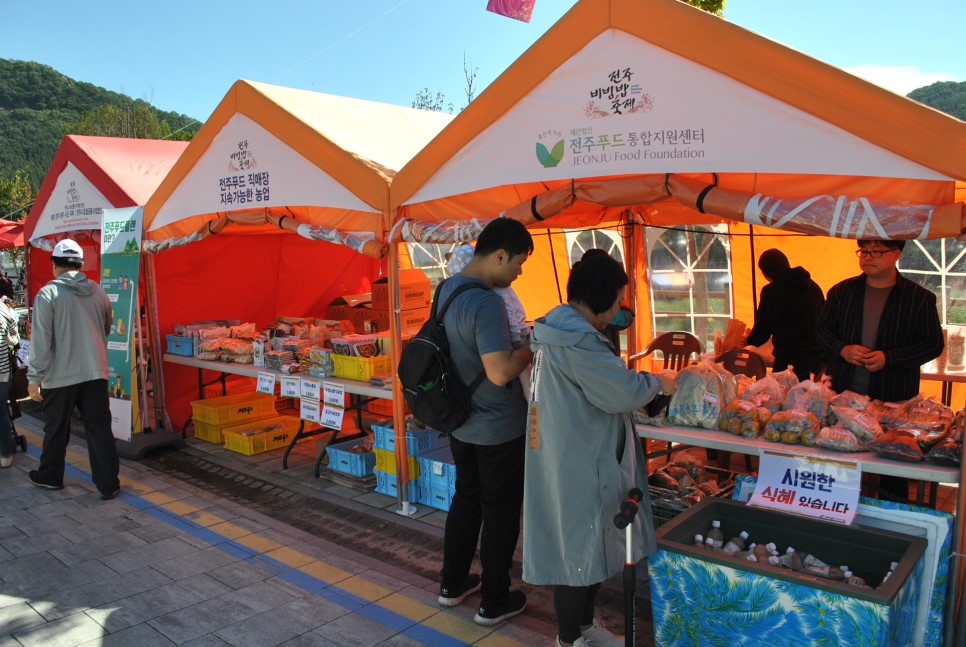
I could try a variety of bibimbap dishes at the festival. Even the famous local bibimbap restaurants opened venues.
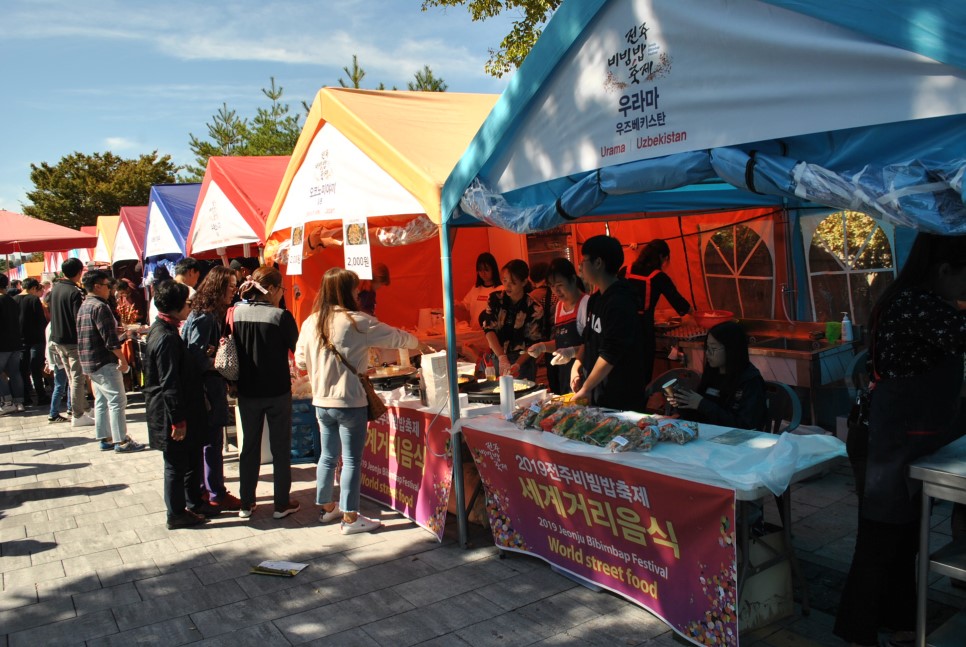
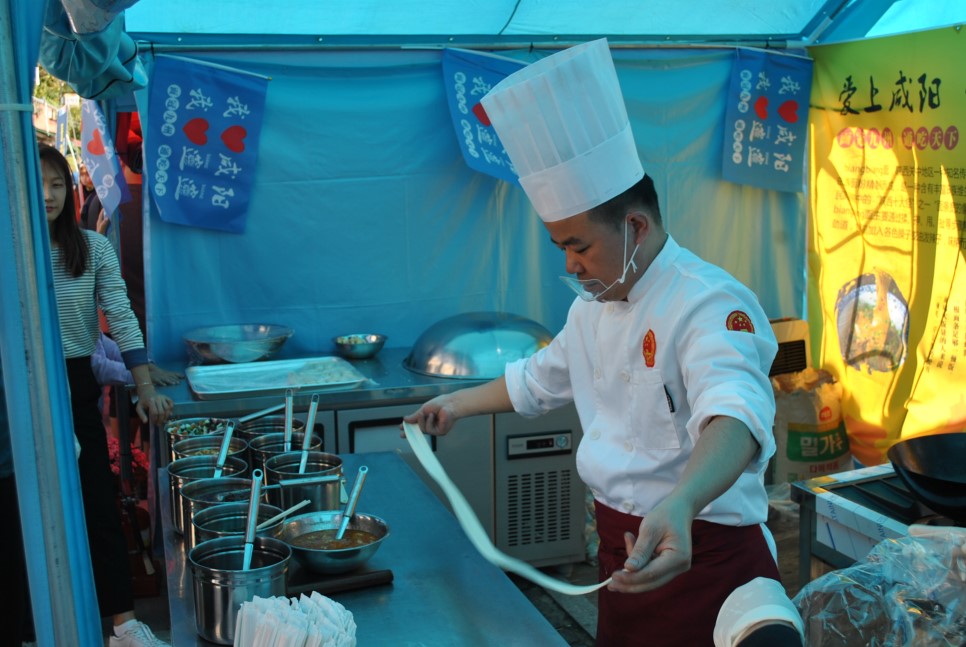
There were also venues selling street food from all over the world. Many people also went for rather unfamiliar dishes.
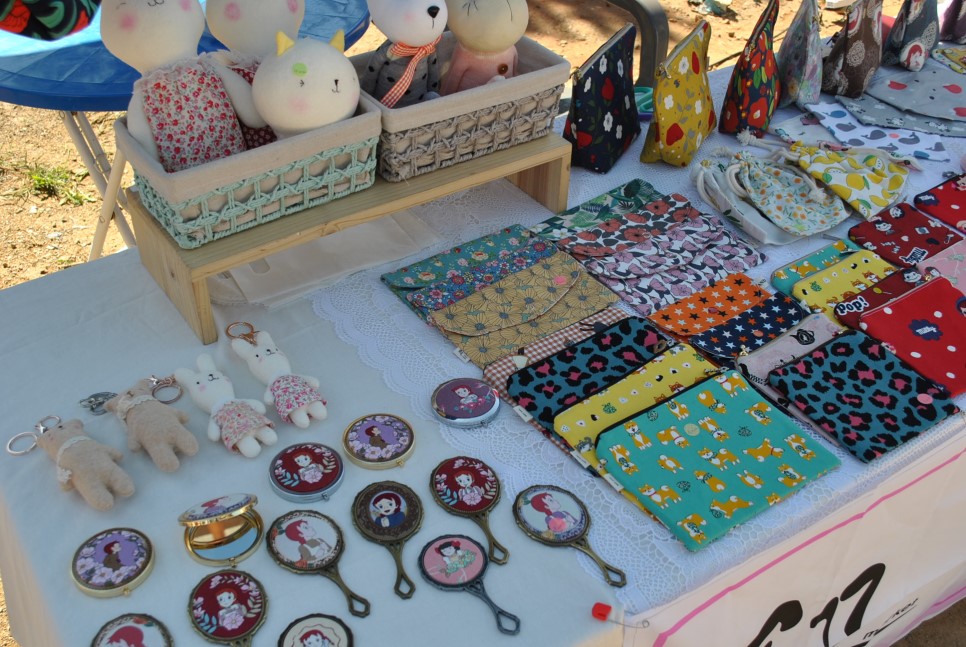
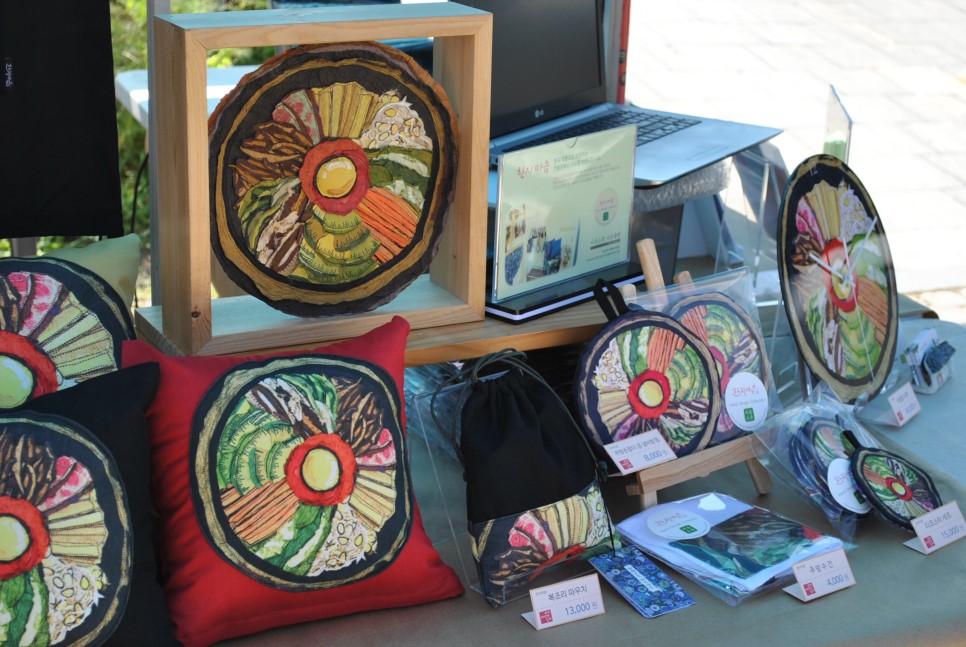
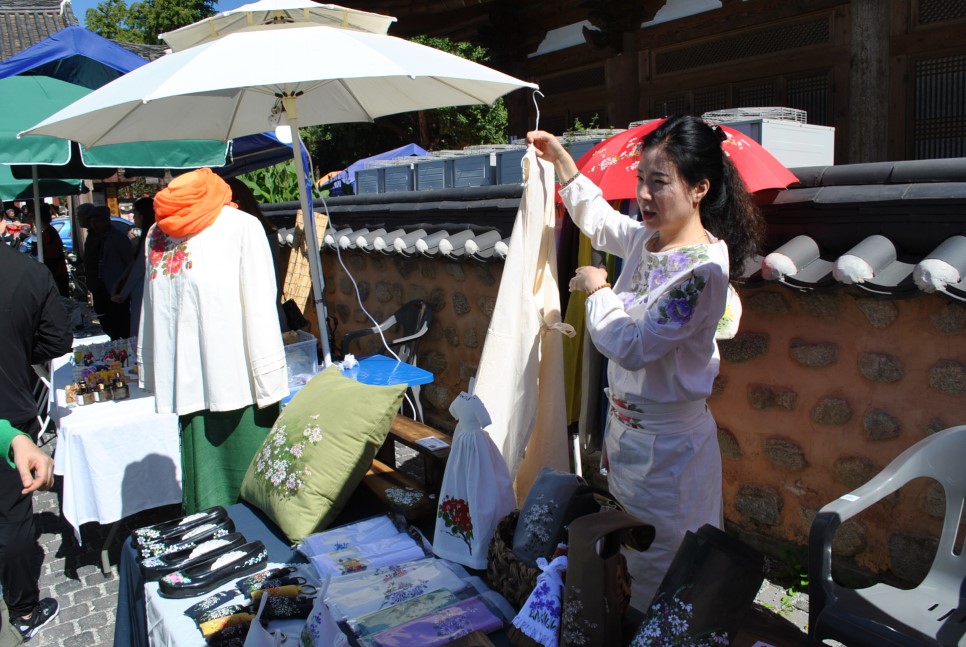
I also visited the flea market selling traditional Korean crafts.
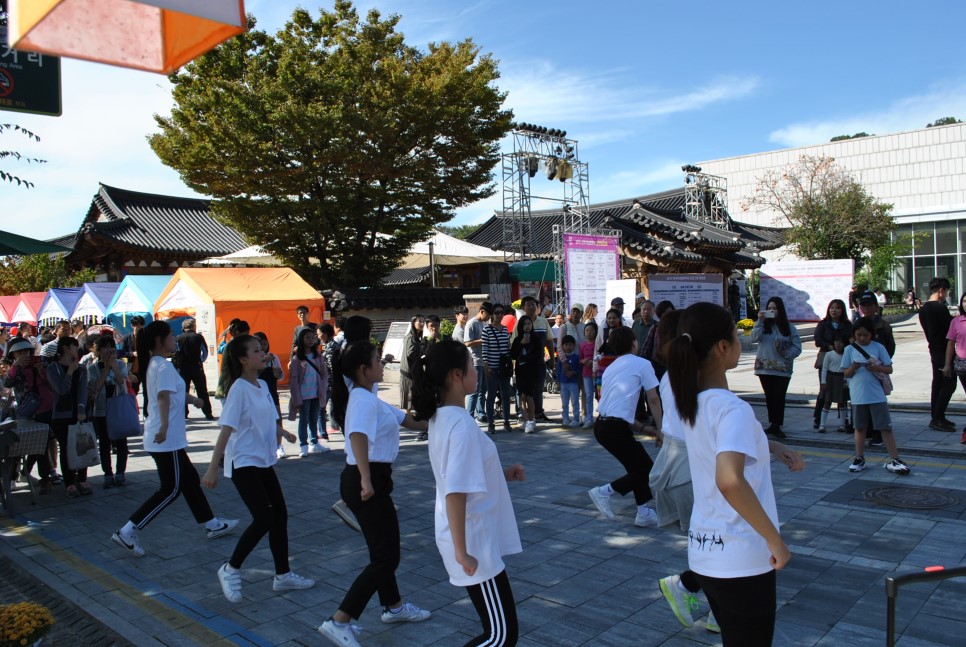
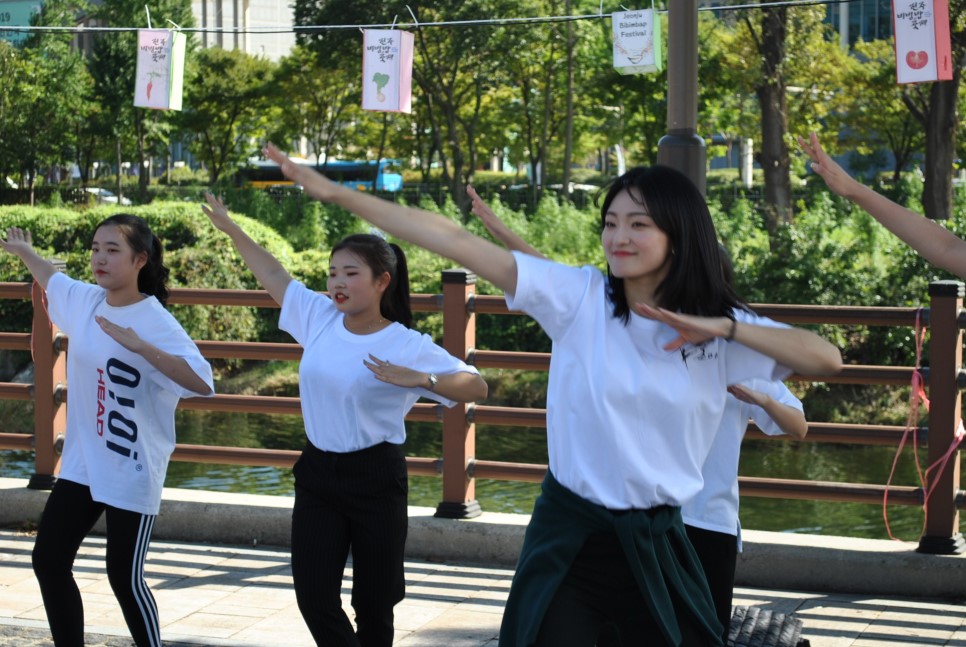
Jeonju Bibimbap Festival was more than just food. I also enjoyed concerts and performances being held around Jeonju Hanok Village.
3. Different bibimbap recipes from all 35 districts of Jeonju
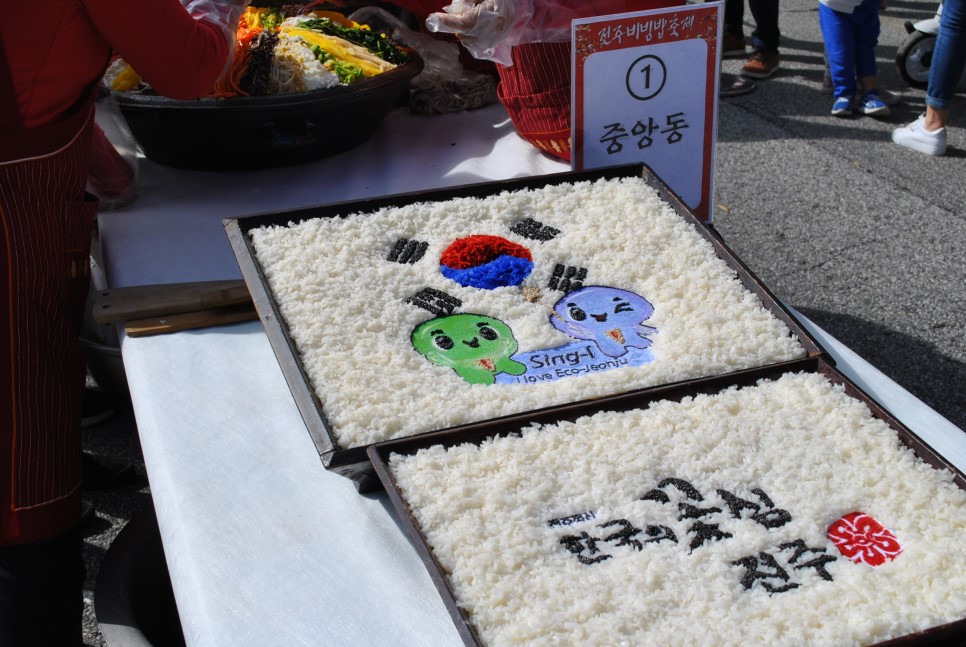
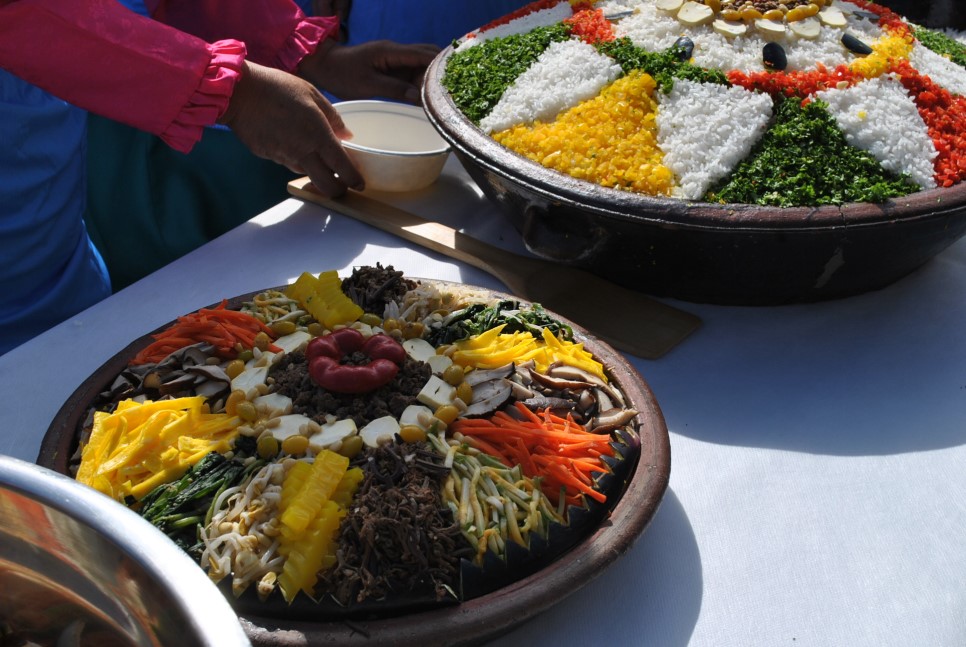
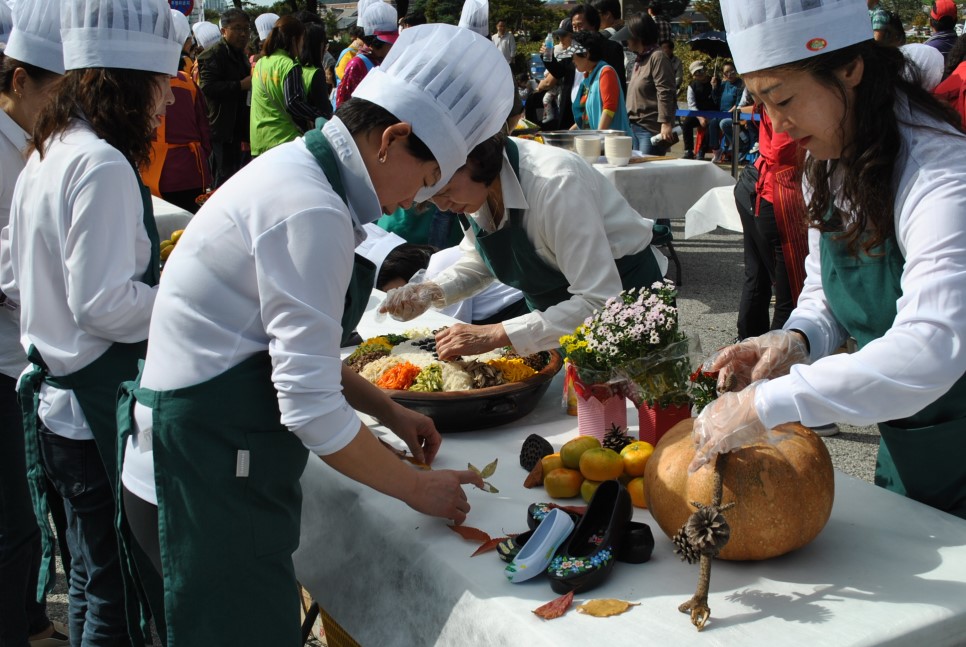
Jeonju consists of 35 districts. Each district prepared unique bibimbap of its own.
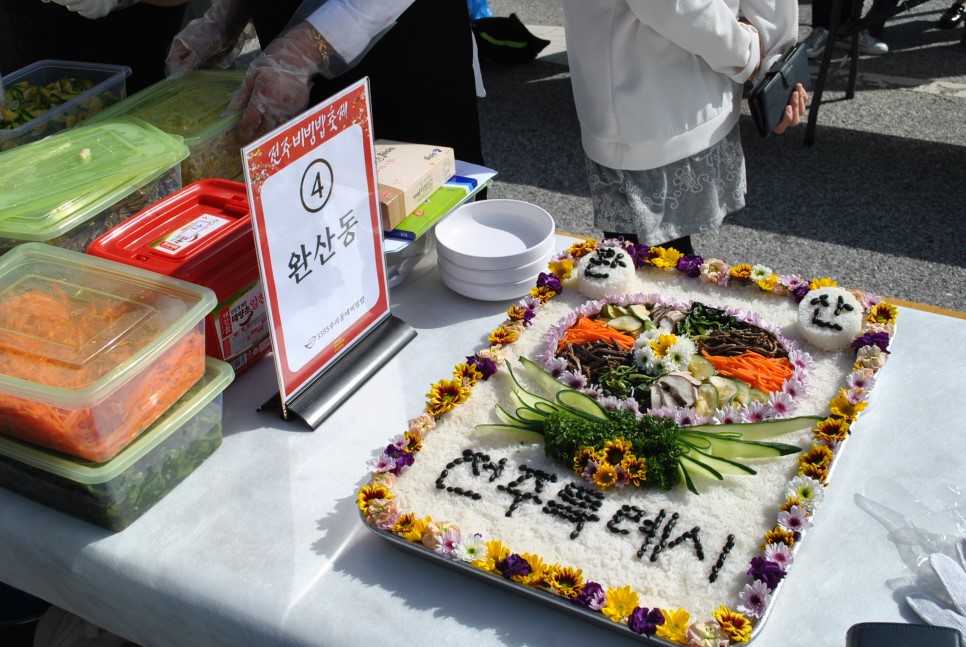
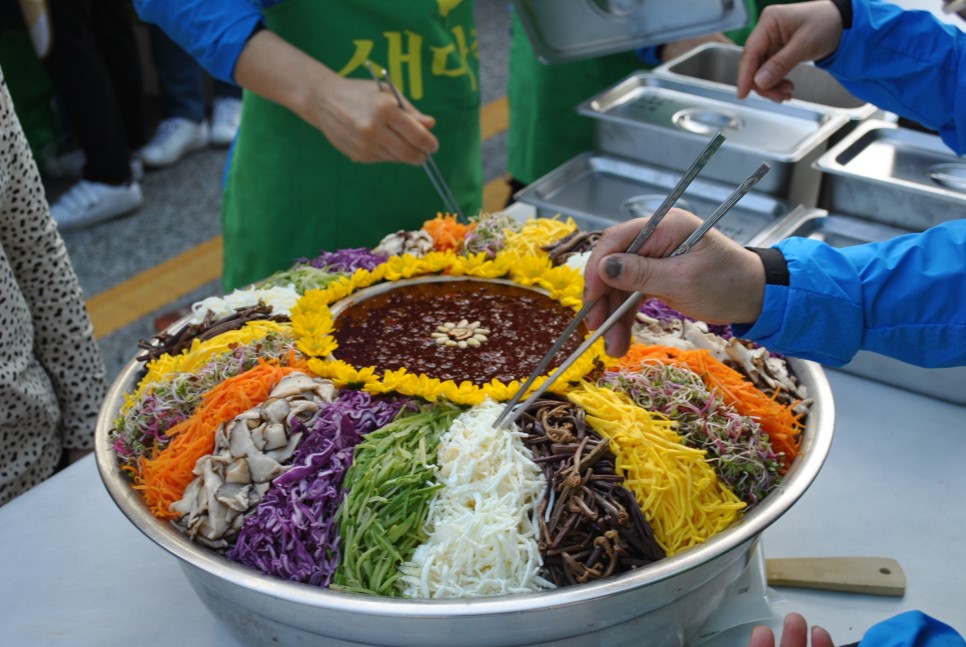
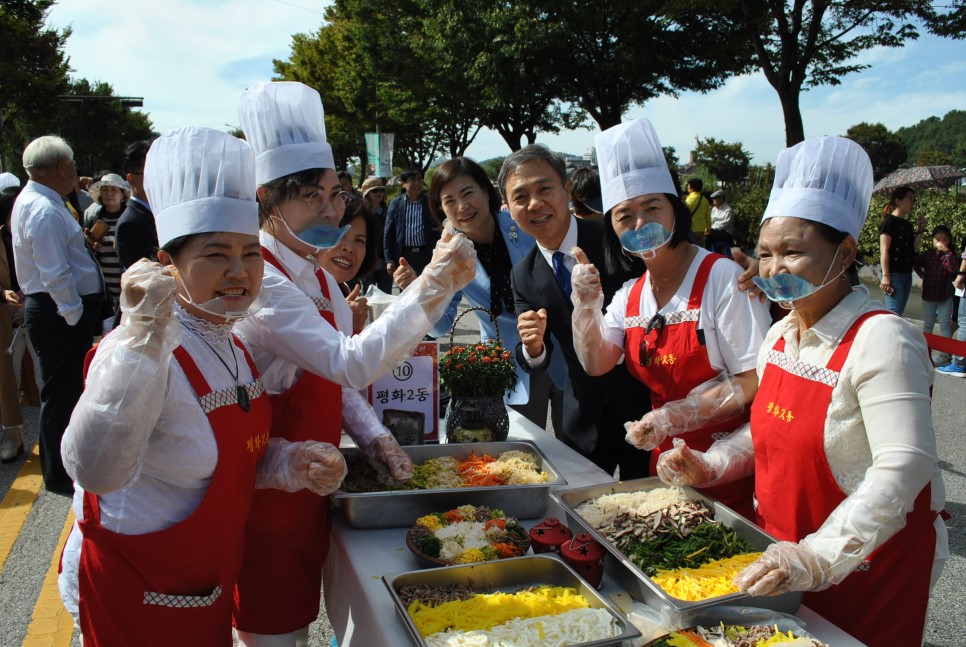
People say that bibimbap contains five colors. But what I witnessed was a festival of innumerable forms and colors. I could see that bibimbap is more than just a food. It is a cultural icon of Jeonju.
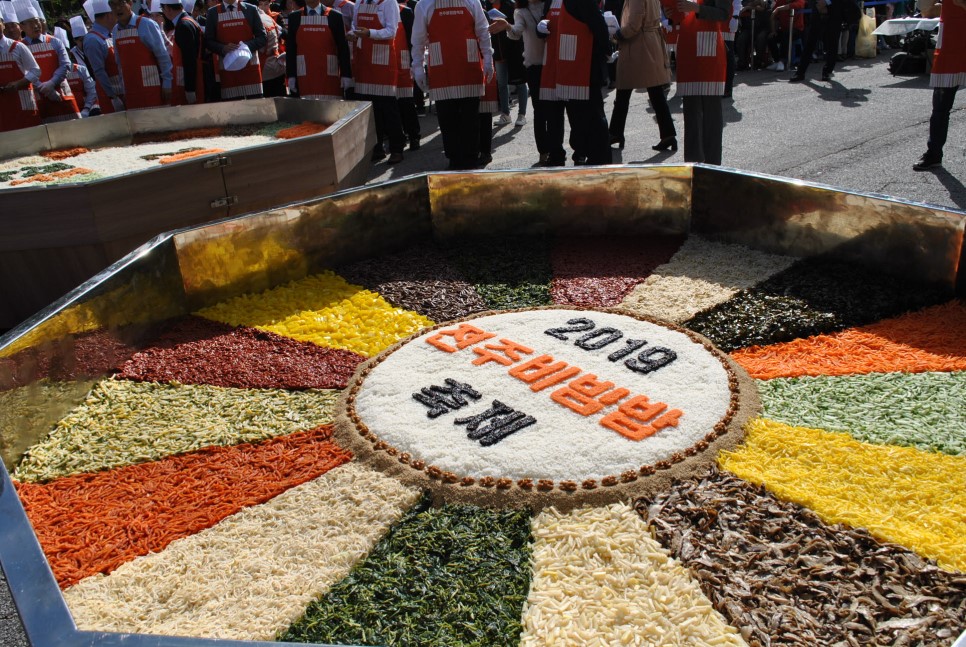
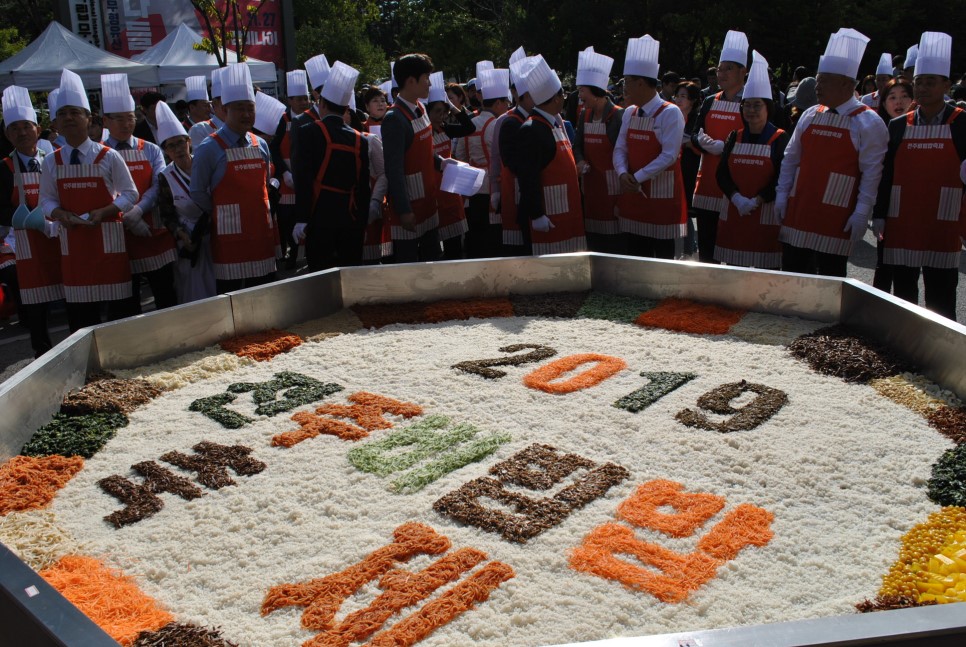
Further boosting the festive mood was mixing the mega bibimbap that can feed around 5000 people. The bibimbap was prepared in a huge pot so that people had to use huge scoops to mix the ingredients. This was the highlight of the festival.
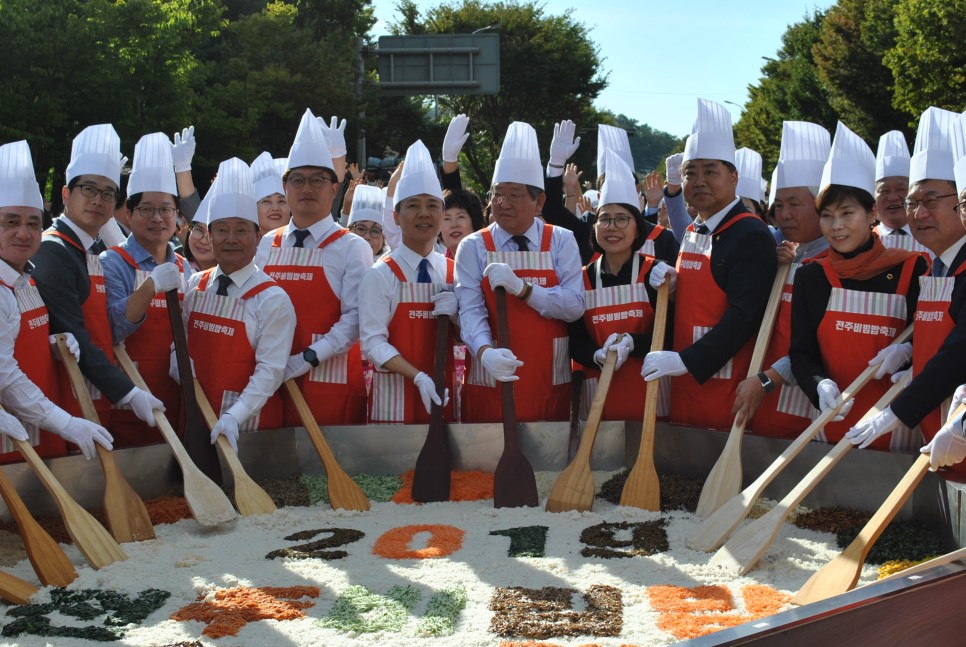
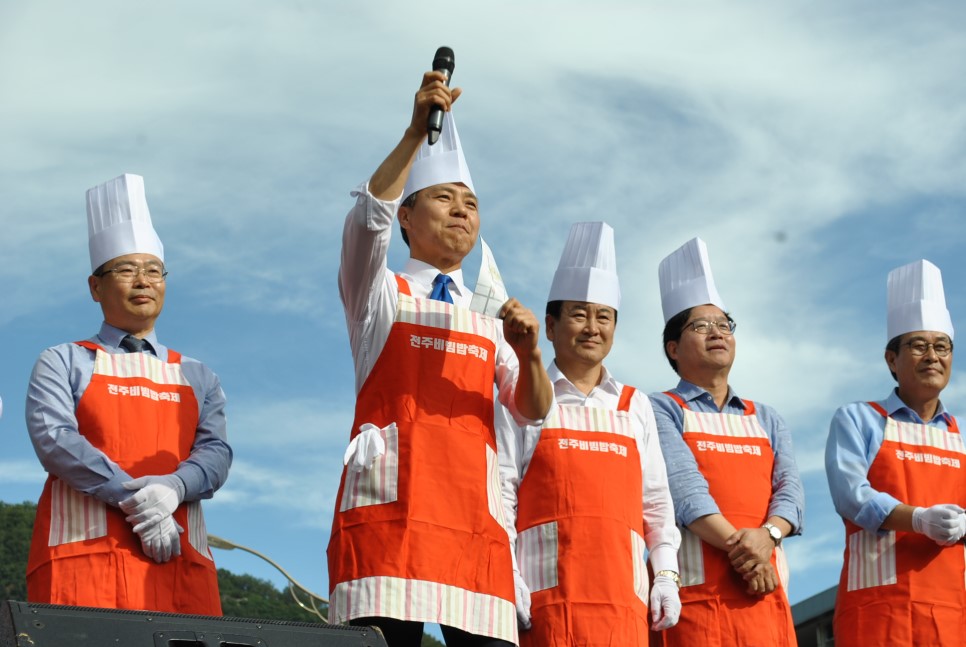
Mr. Kim Seung-su, the mayor of Jeonju, emphasized that ‘the traditional is the future’. A bowl of bibimbap, loved all over the world nowadays, again reminded that Jeonju is the city of tradition and food.

Jeonju Bibimbap Festival is the great opportunity to make fun memories and connect with the locals this autumn. If you missed it this year, there’s still the next year!
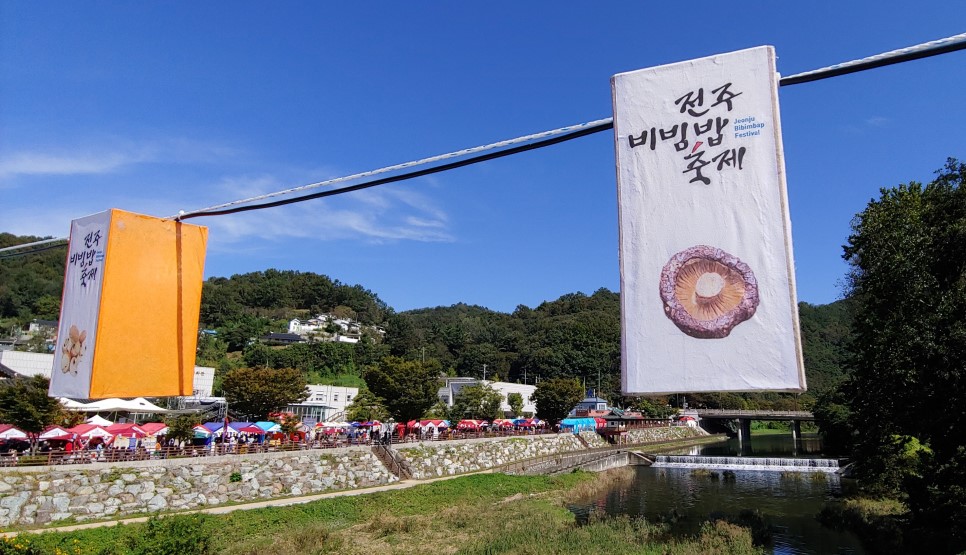
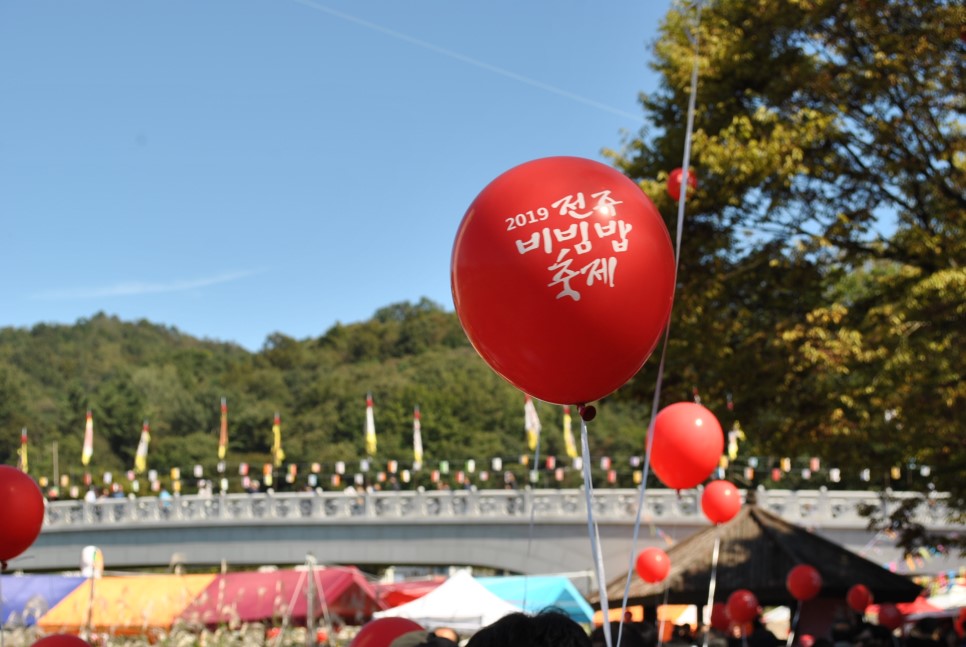
Jeonju Bibimbap Festival
When: 9th ~ 12th October
Where: Jeonju Hanok Village
For more information, visit http://bibimbapfest.com


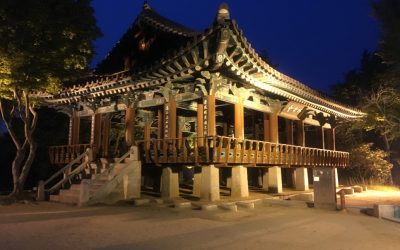
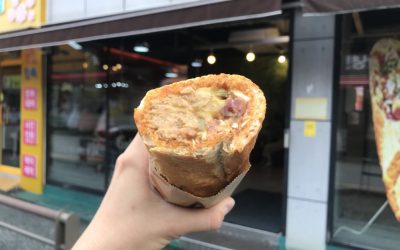
15 Comments